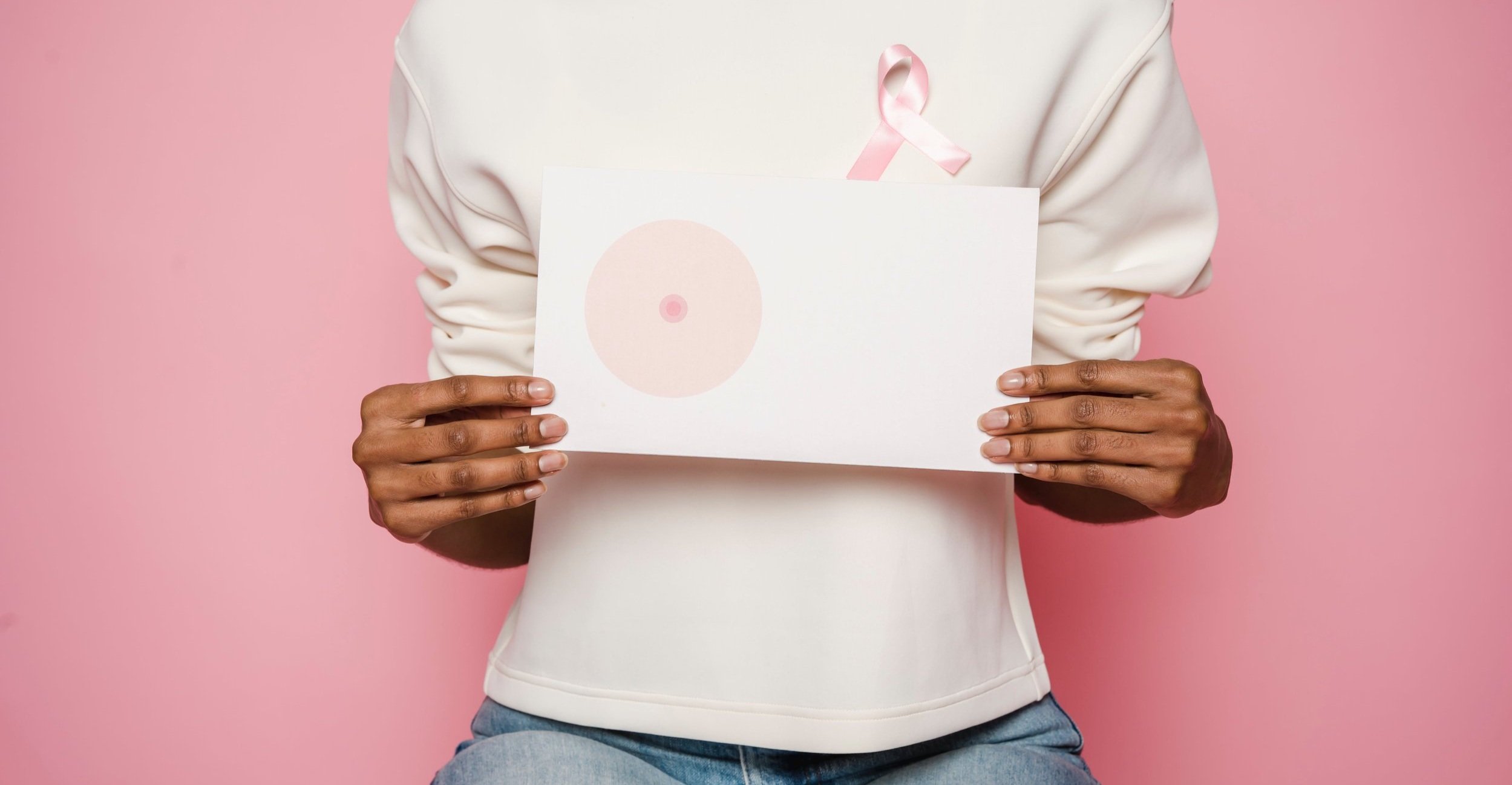Menopause Breast Pain & Tenderness
Running for the bus, up the stairs, or pretty much anywhere, makes you cup your sore and throbbing breasts? Ouch! Breast pain in perimenopause can be pretty uncomfortable and outright painful!
Why are breasts painful in menopause?
Before a period, extra fluid can make your breasts tender to bring cyclical (or period-related) breast pain. In perimenopause, erratic periods and hormone changes mean your breasts can feel heavy, painful, and lumpy pretty much anytime. Different aches - stabbing, burning, throbbing - can come along with changes in size (both bigger and smaller) and shape.
Non-cyclical breast pain is more common in postmenopausal women. It can be a constant dull, heavy, aching pain - or one that comes and goes. It tends to settle down, but if it carries on for more than a week visit your GP. Non-cyclical breast pain can be a side effect of HRT, anti-depressants, and some herbal remedies including ginseng, a supplement often taken for menopause symptoms.
Treating menopause breast pain and tenderness naturally
Herbal and natural remedies may help to lessen the discomfort of sore breasts in menopause:
Evening primrose oil may benefit breast tenderness. If you are perimenopausal and suffering cyclical breast pain, you may have low levels of gamolenic acid (GLA) – fatty acids which affect how our body responds to its own hormones causing greater breast sensitivity. Evening primrose oil contains GLA, although over the counter supplements may contain insufficient levels so better sourced from a medical herbalist.
Omega-3 fish oil, and oils - walnut, linseed, sesame, flaxseed, olive and walnut - rich in essential fatty acids they support the strengthening of connective tissue and skin, all could help with breast pain.
Vitamins B & E may ease breast inflammation and pain - study looking at breast pain in menstrual cycles has shown a link.
Agnus castus applied to your skin may be cooling, soothing and help alleviate the pain.
Chasteberry, reduces the production of prolactin, a hormone that may cause excessive breast pain and swelling.
Acupuncture, a natural treatment, may provide some pain relief as part of a treatment plan that looks at the needs of a person as a whole, rather than dealing with breast pain as an isolated symptom. Consult a British Homeopathy Association practitioner for more information.
When to see your doctor about breast pain and tenderness?
Breast pain can bring worry that it’s a sign of something more sinister. Although pain is rarely an indication of breast cancer, breasts should always be checked to rule out any non-menopause-related conditions.
NHS Choices recommend that you see your doctor if you notice changes to your breasts, such as:
a lump or an area of thickened tissue in either breast
discharge from either of your nipples (which may be streaked with blood)
lump or swelling in either of your armpits
change in the size or shape of one or both of your breasts
dimpling on the skin of your breasts
rash on or around your nipple
change in the appearance of your nipple – for example, it becomes sunken into your breast
pain in either of your breasts or armpits that are not related to your period
any symptoms of an infection in your breast, such as swelling, redness, or warmth in your breast, or a high temperature (fever)
For more information, see Breast Cancer UK for breast care tips.
HRT & painful breasts?
The oestrogen supplemented with hormone replacement therapy may initially cause breast swelling and tenderness which should settle down once your body gets used to the hormones. Conversely, HRT may for some quell the new breast pains that come along with menopause.
More help for Breast Pain & Tenderness





